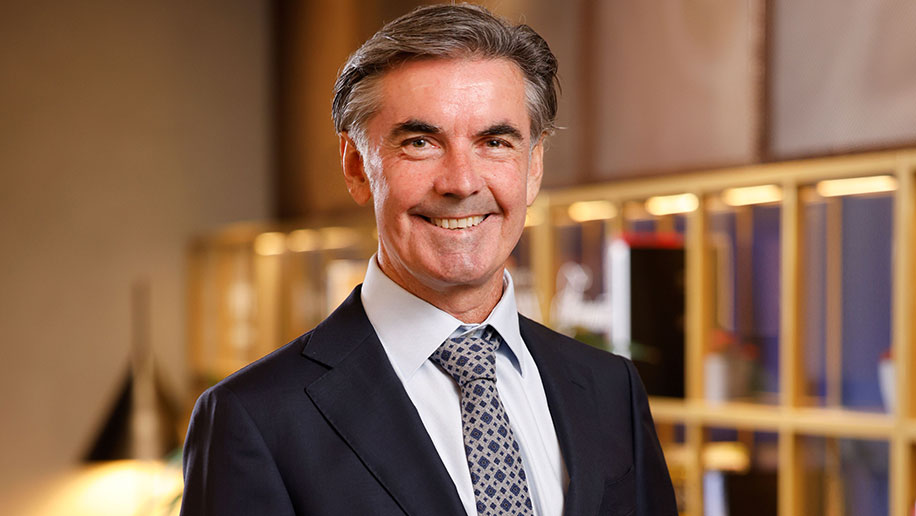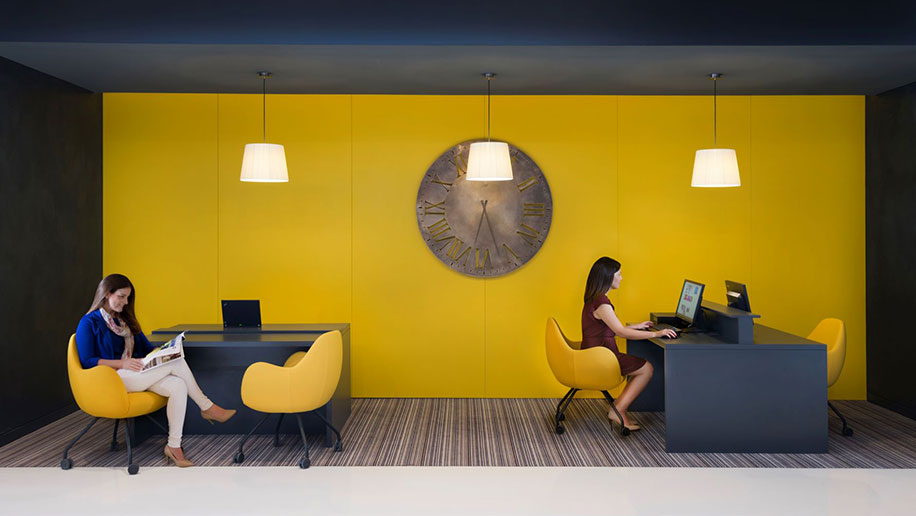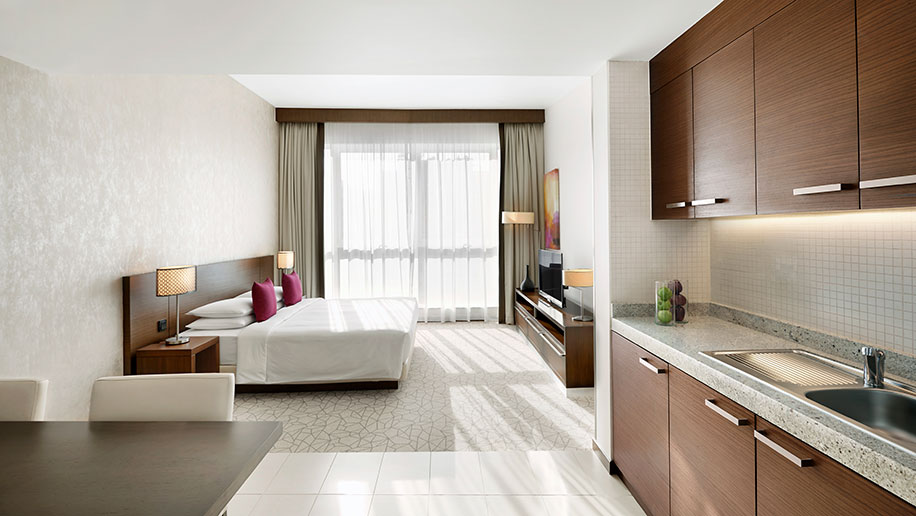
While a global health crisis unfolded nearly four years ago in March 2020, a parallel crisis among a worldwide workforce began to brew. Workers, except those employed in the most critical sectors, were all asked to abruptly cease coming to their workplace and instead work from home. It thrust a vast majority of an approximately 3.5 billion global workforce into adjusting to a new reality of having to find a space in their home where they could live and work. Over the months that followed, the vocabulary of employees – and also of those hiring them – expanded to include words such as ‘remote working’, ‘hybrid workplaces’ and ‘digital nomads’.
The new reality had an impact on several ancillary sectors. The real estate sector gl obally underwent a significant change wherein some people chose to move out of urban centres and relocate to the suburbs since the commute to work was no longer a consideration. Meanwhile, urban city infrastructure that was built to support the coordinated mass movement of employees every day suddenly found itself with spare capacity. Also, technology was forced to play catchup and adjust itself to the needs of these workers.
The impact on the business travel sector was telling too. Four years on though, airlines, hospitality and destinations themselves have all found novel ways to adapt to the work-from-anywhere policy.
“At Accor, we believe that the global pandemic has profoundly changed work habits. Our brands and hotels have adapted by creating spaces that are lively, flexible, community-based and creative. It is integral to create an environment that aligns with the needs of remote workers. ‘Augmented Hospitality’ remains a key focus with an emphasis on multi-faceted and mixed-use development projects,” says Paul Stevens, chief operating officer of the Premium, Midscale and Economy Division for the Middle East, Africa and Türkiye at Accor.
Stevens adds that Accor currently operates 224 properties – 55,500 rooms – with 69 further properties in the pipeline across the Premium, Midscale and Economy divisions in the Middle East, Africa and Türkiye region. These include 16 hotels – 2,900 keys – in the Middle East across multiple brands within the portfolio such as Aparthotel Adagio, Swissôtel Living, Mövenpick Living, and Novotel Living that are made keeping in mind the requirements of these remote workers. Stevens says, “Adapting to the post-Covid world, Accor is integrating modular workspaces by reimagining the spaces in its properties. From Novotel Suites Dubai Mall of the Emirates and the Premium Aparthotel Adagio Jumeirah Village Triangle to Mövenpick Living in bustling Istanbul and Swissôtel Living in Jeddah, guests enjoy the independence of apartments combined with renowned hotel services.”

The rise of flexible working models has also put into the spotlight newer trends such as that of “bleisure” wherein business travellers often extend their stay for a few days for leisure activities since their employers allow them to work remotely for a brief time before returning home. “Remote work policies have granted employees the flexibility to work, not only from home, but also from any location with internet access. Thanks to the flexibility of remote working, guests are choosing extended stays over the typical short-term ones and increasingly choosing accommodations that offer amenities conducive to remote work, including high-speed internet, comfortable workspaces within rooms, ergonomic furniture, and access to business centres or co-working spaces within the hotel premises. Furthermore, guests have been seen opting for flexible booking policies, allowing for easier cancellations and modifications to bookings, addressing the unpredictability of remote work schedules. These trends have significantly impacted the hospitality sector, encouraging hotels to adapt their services to meet the requirements of remote workers,” says Stuart Deeson, vice president of operations for Hyatt within the Middle East and Africa.
For a select few, the shift to working remotely has become a permanent feature – which means that they are free to work from anywhere in the world. In 2021, a digital nomad visa was introduced within the UAE. In Dubai, for example, remote workers from around the world are now welcome to set up base for up to one year and acquire this visa which offers them full rights and access on par with regular residents of the country, while they’re still employed by their overseas employer. The eligibility criteria to obtain the visa are fairly straightforward: employees need to be drawing a monthly salary of US$3,500, have at least a year’s contract with their employer and possess health insurance with coverage within the UAE. Once approved, they get a one-year visa with vital local benefits including access to utilities, telecoms, and schooling for their children.

In a sign of Dubai’s repute as a remote working hub, Airbnb partnered with the Dubai Department of Economy and Tourism towards the end of 2022 to launch the Dubai remote working hub portal which offers information on long-term listings as well as information on the emirate’s entry requirements and its visa policies. The initiative came by way of Airbnb’s Live and Work Anywhere programme wherein it identified 20 destinations globally including in the Canary Islands, the Caribbean and Thailand, that were the most remote-worker-friendly places in the world.
Dubai’s standing was only reinforced more recently when research from real estate broker Savills found that Dubai topped its list of the 20 most appealing destinations for executive nomads to live. “Many have been impacted by layoffs across global tech firms,” says Swapnil Pillai, Savills Middle East associate director of research. “They are exploring the city as a base to support these thriving sectors. Most of the city’s co-working spaces are operating at nearly 100 per cent occupancy, which supports Dubai’s ranking as a top destination for executive nomads.”
Also on that Savills Executive Nomad Index, at number four, is Abu Dhabi which scored high among the criteria considered by Savills which include the affordability and availability of prime real estate residential properties, quality of life, climate, air connectivity and internet speed. Just last month, free public wifi – known as Hala Wi-Fi – was introduced across Abu Dhabi including at its parks and on its public buses.
As for air connectivity, one of the criteria considered by Savills, Abu Dhabi has a brand-new Terminal A, whereas Dubai International (DXB) airport has been ranked as the world’s busiest international airport for nine consecutive years. DXB is also home to Emirates. “From an Emirates perspective, and based on our business model which not only hinges on point-to-point, but also connectivity via Dubai to our network of over 140 cities, we are seeing travellers make longer journeys, which means they could be working remotely,” said a spokesperson for Emirates.
“Our hub Dubai is a perfect example of how travellers are incorporating remote work into their plans. Our top inbound markets like the UK, India, Germany, the US and Saudi have shown significant growth, almost doubling in size since 2019. A third of those visiting from these top markets are staying in Dubai for close to two weeks or more. With greater flexibility for remote work, and more distributed workforce environments, Dubai also offers a broad range of spaces for business and leisure. As an airline, we’ve calibrated our booking tools to combine flights with accommodation, local Dubai experiences, and much more to cater to these types of travellers,” added the Emirates spokesperson.

The growth in the number of people coming to Dubai to take up long-term residence has been a trend that hospitality majors such as Accor and Hyatt are responding to swiftly. As for IHG Hotels and Resorts, it also said recently that it has found an increasing number of people in Dubai opting for its long-stay hotel apartments. Staybridge Suites Dubai Al Maktoum, it says, specifically caters to extended stays, with apartment-style suites, fully equipped kitchens and dedicated living areas. That property, IHG notes, has 60-70 per cent of its total inventory of 244 units regularly booked up. Similarly, its InterContinental Residence Suites Dubai Festival City property also reportedly is usually at 60 per cent capacity across its 341 luxury residence suites. James Britchford, vice president of Commercial IMEA at IHG Hotels and Resorts, says, “IHG’s presence across Dubai ensures that guests looking for long-stay options have a broad range of choices. Our diverse brands and local offerings are thoughtfully designed to suit the needs of a global expat community, ensuring that families, young professionals, and remote workers are all able to enjoy the benefits of hotel living.”
Accor’s Stevens says that there are further trends to be culled by way of accommodating remote workers. He says that one major trend is the increased demand for services supporting hybrid events. “In response, we have introduced the ALL CONNECT concept powered by Microsoft Teams, a pioneering hybrid meeting experience allowing companies and organisers to schedule physical meetings at the hotel while ensuring remote and simultaneous interaction with multiple external participants,” says Stevens.
Stevens adds that Accor has witnessed a growing demand for midscale branded residences in markets such as UAE, as well as in Egypt and Saudi Arabia with the Novotel Residences Makkah in Thakher City in Saudi set to open soon. Accor is also expanding its portfolio with the introduction of concepts such as TRIBE, a new lifestyle brand in the midscale segment.
Hyatt’s Deeson meanwhile points to Hyatt Place and Hyatt House as properties that appeal to remote workers. “There are several Hyatt Place hotels and Hyatt House properties in the UAE and Saudi Arabia that offer spacious rooms and flexible spaces to work or socialise, making them ideal spots for remote work and leisure. The hotels offer remote workers exclusive access to a fully equipped business centre,” says Deeson.
In the case of Wyndham, it launched The Meetings Collection in 2021 which is a network of its premium meetings-focused hotels. Within a little over a year after it launched, it went on to include more than 160 Wyndham hotels worldwide including Wyndham Grand Istanbul Kalamis Marina in Türkiye and Wyndham Dubai Deira in the UAE.
Co-working spaces are on the rise too, and some of them are incentivised by the hotels themselves. At the Radisson Blu Hotel, Riyadh Convention and Exhibition Center in Saudi Arabia, for example, its Camel Step Café offers daily rates for startup founders and freelancers to use the space. The daily rates include unlimited coffee and snacks, business centre services, high-speed wifi, valet parking, complimentary printing and the use of the hotel’s meeting room for one hour.
Another example of co-working spaces becoming more organised can be found by way of Dubai-based startup Letswork which has teamed up with hotels, cafés and business centres to offer individuals and companies the chance to pick where they want to set up their co-working space. Letswork has already expanded beyond the UAE into Bahrain, Saudi Arabia, Portugal and Spain.
There are indications that there will be a slowdown to the growth of remote workers – a number of major companies have begun taking steps to curb the 100 per cent remote working model, among them Activision Blizzard, Disney, and X.
But make no mistake, remote working isn’t a phenomenon that’s going to fade into the sunset. Recognising that to be the case, Dubai even hosted the Remote Forum last year as a platform that seeks to understand the new frontier of opportunities that the remote workforce will pose for the future. Omar Al Olama, the UAE’s Minister of State for Digital Economy, AI and Remote Working System, was reported as having said at the forum, that remote work was “now a main way of work and not an option” and that remote work in the UAE should be used as a “competitive advantage that improves the quality of life” of residents and visitors to the country. The business travel sector stands ready to deliver.












